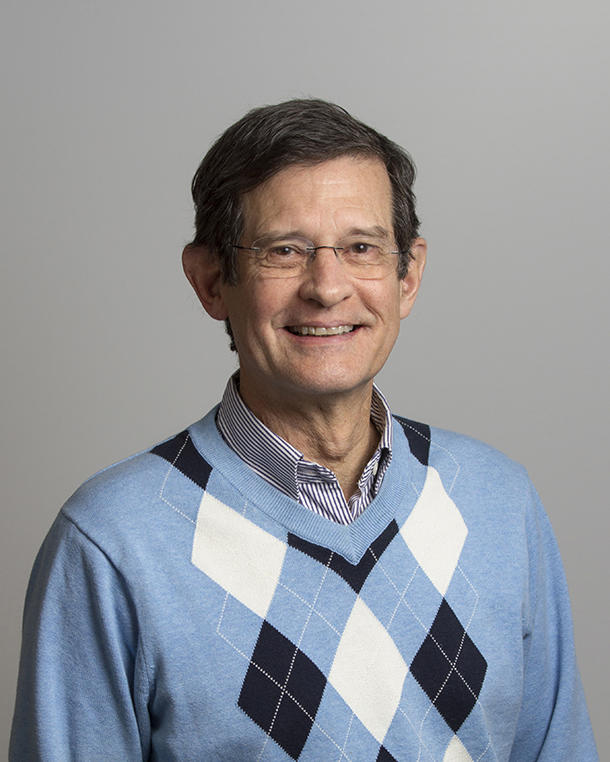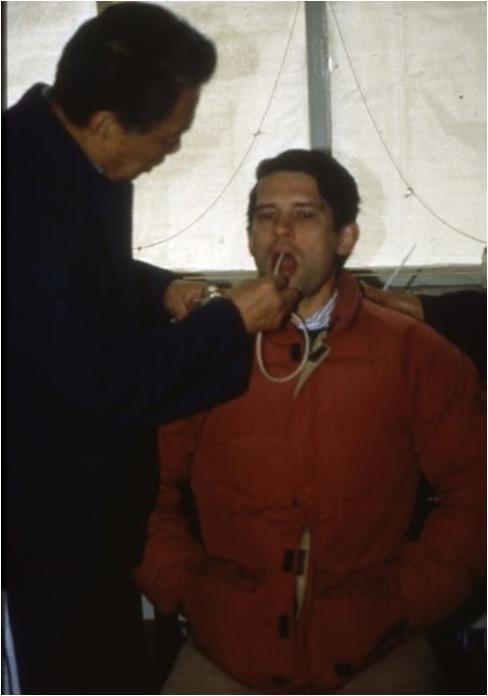Sandy Dawsey Retires from NCI After 35 Years
, by Jennifer K. Loukissas, M.P.P.
Sanford M. Dawsey, M.D., senior investigator in the Metabolic Epidemiology Branch (MEB) retired in August 2023, after 35 years of service to the National Cancer Institute (NCI). Dr. Dawsey is best known for his research on methods of prevention and control of esophageal squamous cell carcinoma (ESCC), including etiologic studies of ESCC in high-risk populations and the development of clinically useful techniques for the early detection and treatment of ESCC precursor lesions and early invasive tumors.
A pathologist by training, Dr. Dawsey has conducted numerous field studies of ESCC in high-risk countries around the world, including China, Iran, Brazil, and Kenya. He and his collaborators identified important potentially modifiable risk factors for ESCC, including low serum selenium, exposure to high levels of polycyclic aromatic hydrocarbons (PAHs), poor oral hygiene, and drinking scalding hot beverages such as tea and maté, a widely consumed tea-like beverage used in Southern South America that is often heavily contaminated with PAHs. Furthermore, he led multiple studies that conclusively proved that HPV is not the cause of high rates of ESCC in these high-risk regions, which was very important since it means we cannot rely on the HPV vaccine to reduce the burden of ESCC in these populations.
In partnership with colleagues in China and the U.S., Dr. Dawsey developed an endoscopic early detection and treatment program that has been shown to significantly reduce ESCC mortality in high-risk areas of China. Today, this program screens over 200,000 adults annually in China. He was also instrumental in the establishment of the African Esophageal Cancer Consortium (AfrECC), a network of programs that perform coordinated etiologic, early detection and treatment, and palliation studies of ESCC in Eastern and Southern Africa. He plans to continue making major contributions to AfrECC in retirement as an NCI Special Volunteer.
Dr. Dawsey received his medical degree from Stanford University, Palo Alto, California, completed his residency in pathology at the University of Colorado, Denver, and completed a fellowship in cytology at the University of California, Los Angeles.
In the 1980s he served as the first pathologist at the McCormick Hospital in Chiang Mai, Thailand, where he helped start the first Pap screening program in Northern Thailand, and he served as a staff pathologist at Saint Joseph Hospital in Denver, Colorado. He joined NCI in 1987 to work on the Nutrition Intervention Trials in Linxian, China, which has the highest rates of ESCC in the world.
Over the course of his career, Dr. Dawsey trained dozens of fellows locally and remotely in the U.S., China, Iran, Kenya, and Malawi. In 2011, he received the NIH Ruth L. Kirschstein Mentoring Award for "exemplary performance while demonstrating significant leadership, skill, and ability in serving as a mentor." In 2018, he received the DCEG Exemplary Service Award in honor of his outstanding research on esophageal cancer.

